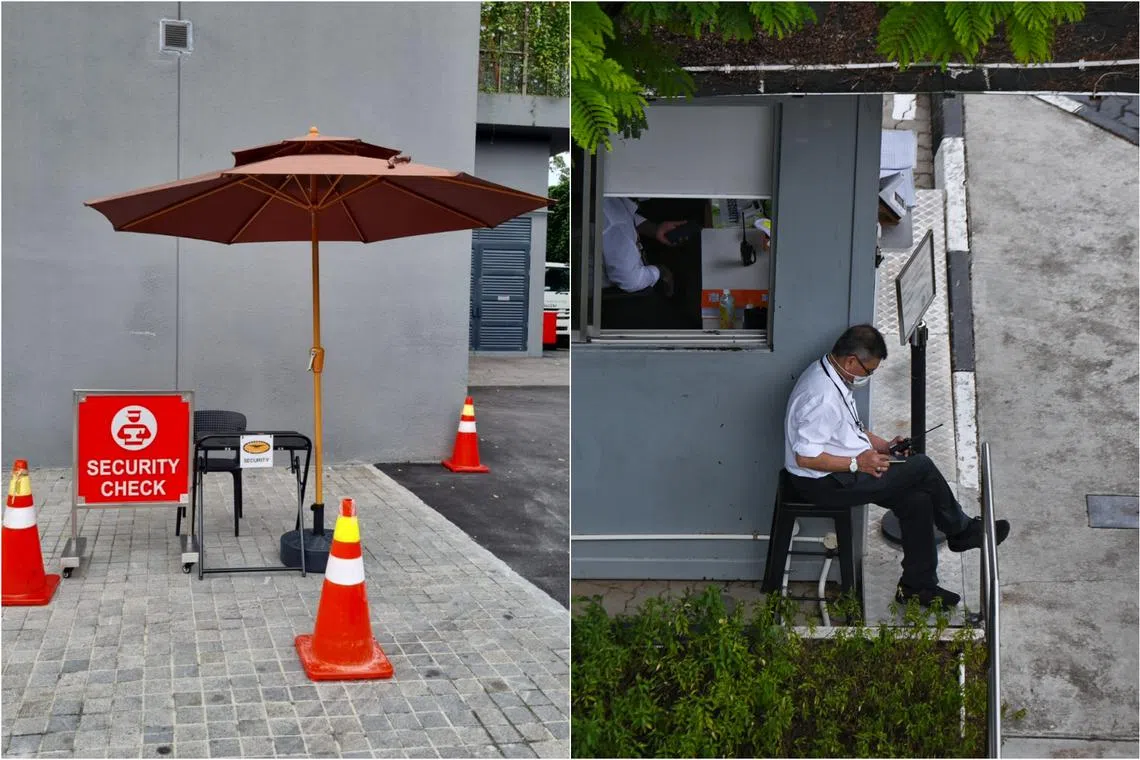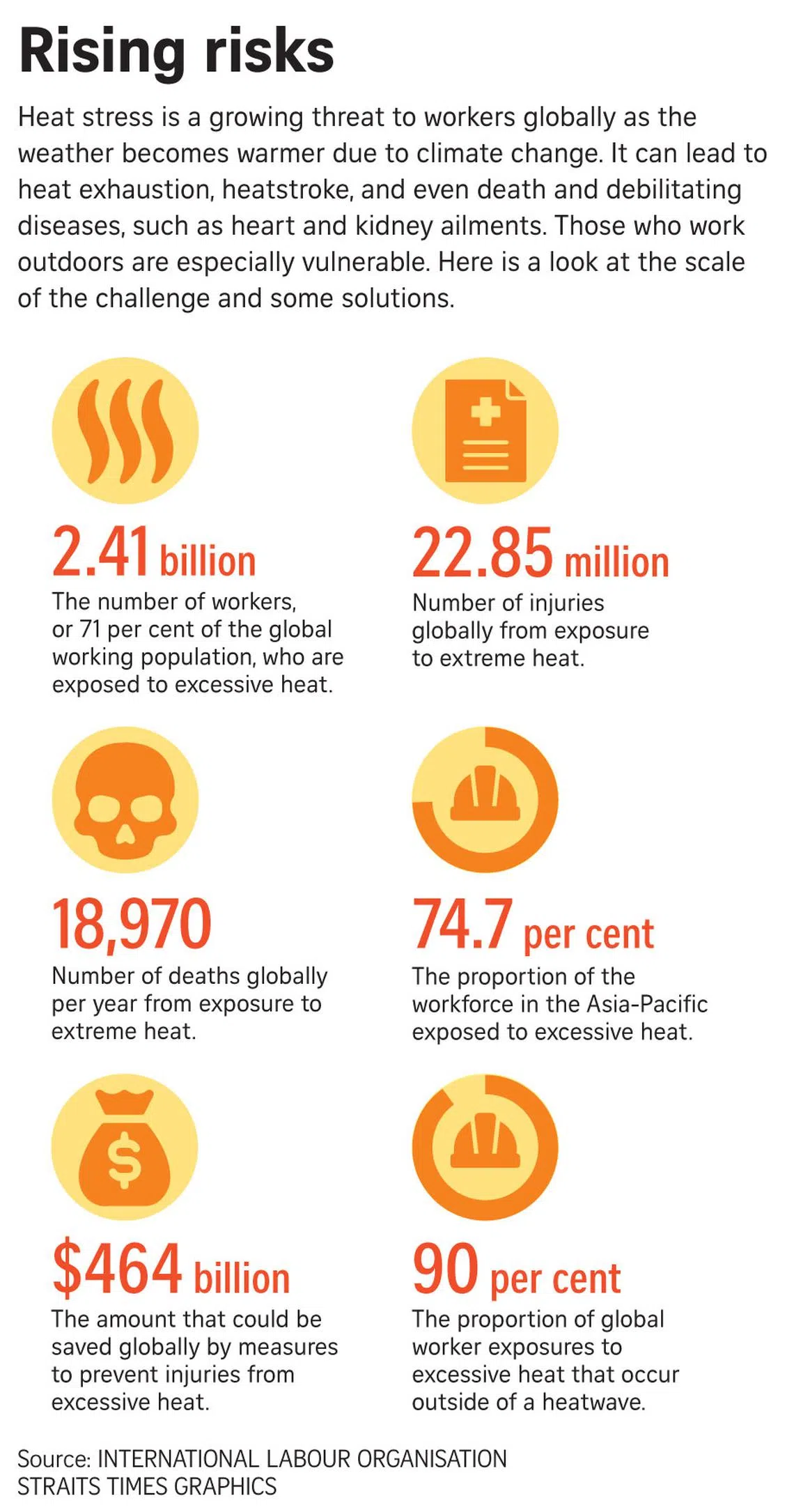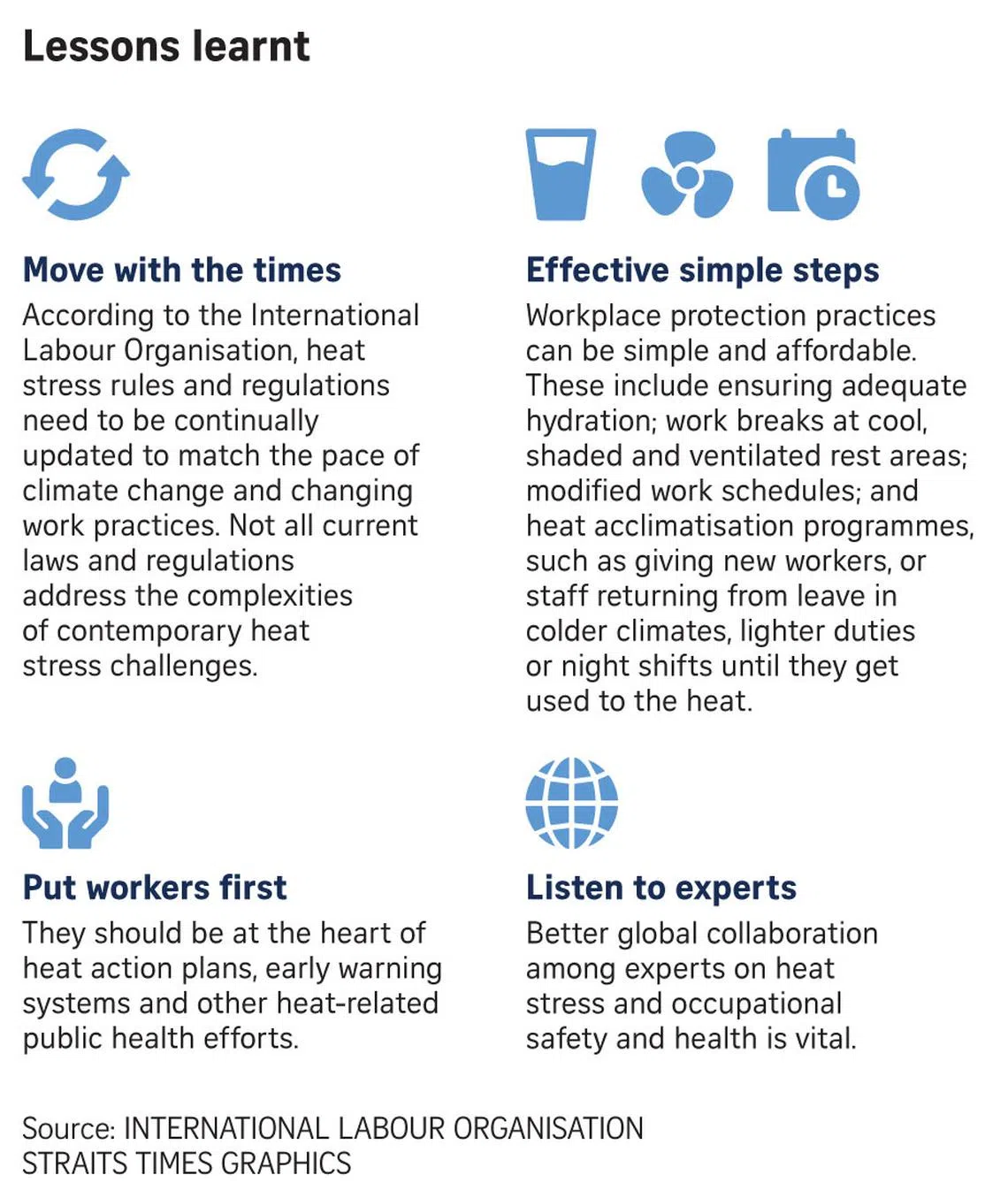Security risk: Scorching conditions could threaten guards’ safety, performance
Sign up now: Get ST's newsletters delivered to your inbox

While security guards' risk of heat stroke is lower, thermal discomfort can affect their performance at work.
PHOTOS: METROPOLIS SECURITY SYSTEMS, ST FILE
SINGAPORE – Mere steps away from the cool reprieve of an air-conditioned guardhouse, security guards at a condominium complex in Sims Avenue conduct checks on everyone and every vehicle passing through the back gate.
Even under the shade of a parasol, they have to contend with Singapore’s sweltering heat.
Previously, the guards did not even have the parasol, table and chair that now make up their outdoor workstation, said Mr Randy Ang, general manager of Metropolis Security Systems, which eventually provided the workstation set-up for its officers at the condo.
“There is high traffic load and kids crossing between 11am and 3pm. Standing under the hot sun is very demanding for the officers,” he said.
Aero Asia Security Systems’ chief operations officer Selvakumar Panneerselvam said guard posts at Singapore’s industrial areas tend not to be air-conditioned, and security guards tend to be more exposed to the elements as they make longer patrols of these sites. At sites where clients refuse to install air-conditioning, the company has had to buy window air conditioners for guard posts, he added.
Patrolling or traffic control duties are generally not considered exertional work, compared with construction work, for example.
But while security guards’ risk of getting heatstroke is lower, “anyone who has to do prolonged work in our hot and humid condition can be thermally uncomfortable”, said Associate Professor Jason Lee from the NUS Yong Loo Lin School of Medicine.
“We speculate that if they are uncomfortable, their decision-making and alertness might be compromised,” added Prof Lee, who is also director of the Heat Resilience and Performance Centre at NUS Medicine. “There will be a tendency for them to complete their patrols and rounds as soon as possible.”
This could put an area’s security at risk. Most security officers are also older, and the body’s ability to handle heat declines with age. It can be harder for older people to sweat, their thirst sensation is blunted, and some chronic disease medications may affect the body’s ability to regulate temperature.
According to the Security Association of Singapore, half of the roughly 48,000 active security officers in Singapore are above the age of 60.
An older security guard’s heat strain while controlling traffic at noon could possibly match that of a younger and fitter person doing exertional work, added Prof Lee.
Exposure to intense ultraviolet rays can also cause sunburn, affect the eyes and increase the risk of skin cancer. This is especially so between 11am and 3pm on days with little cloud cover.
For senior security officer Adam Goh, 23, who works at Paya Ubi Industrial Park on weekdays and at condominiums on weekends, two-thirds of his duties are done outdoors.
When one electric fan broke down while Mr Goh and his colleague were registering visitors at the entrance, they took turns to stand in front of the remaining fan.
“During hotter periods, we try to swop main entrance duties every 30 minutes instead of every hour because we need the guardhouse air-con more often,” he said.
“During patrols, I would end up walking a bit faster so I can rest a bit longer,” added Mr Goh, noting that it could take more than an hour to finish a round at an industrial park.
In April – in the middle of the hotter period – the Security Association of Singapore released a heat stress management advisory, urging agencies and clients to reduce security guards’ exposure to the sun by postponing patrols to cooler times of the day or having them do their rounds under the shade.
The association stressed that those changes should not compromise security and an area’s safety. In its guidelines, the association also urged managers to redeploy vulnerable workers to less demanding tasks.
Mr Blaise Ong, director of security services at Aedge Group, insists that clients meet the basic needs of security officers deployed to their companies.
“When we tender for a project, there must be certain criteria,” he said. “We want a minimum standard for work conditions: a proper guardhouse, proper ventilation. We push for air conditioning, blinds, tinted windows, proper tables and chairs.”
Prof Lee suggested that neck-cooling devices could be useful to make security guards feel more comfortable.
Metropolis’ Mr Ang added: “We have to make the work environment conducive and functional as much as possible for officers to do their job safely.”




